Ceylon
-
Hidden Treasure — Collecting Books on Ruby & Sapphire
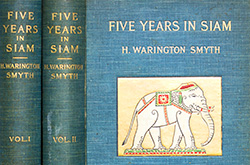
A discussion of the literature of ruby and sapphire (corundum), with particular emphasis on the most collectible books covering ruby and sapphire around the world.
-
Padparadscha or Pretender — An Unusual Pink-Orange Sapphire
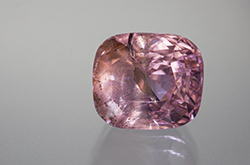
An orangish pink “padparadscha” sapphire was submitted for testing at Lotus Gemology’s Bangkok laboratory. Testing showed a number of conflicting features that suggested the gem was a cleverly treated synthetic pink sapphire designed to imitate natural padparadscha.
-
Ruby & Sapphire (Corundum) Inclusions — Lotus Gemology's Crystal Registry

Solid inclusions have been used by gemologists as a means of determining origin. While there is a great deal of overlap from one source to another, there are also important differences. For example, while apatite has been identified in sapphire from Madagascar, Myanmar and Sri Lanka, apatite has never been identified in sapphire from Kashmir. Thus the purpose of this article is to give a full listing of solid inclusions in gem corundums from around the world, with each occurrence fully referenced. This is provided with the goal of making origin determination of ruby and sapphire more accurate. -
Ruby & Sapphire Color Types — From Peacock to Pigeon's Blood
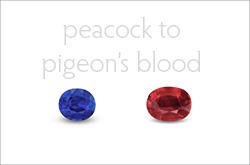
A brief description of the color types for ruby and sapphire used at Lotus Gemology.
-
Ruby Connoisseurship — Seeing Red
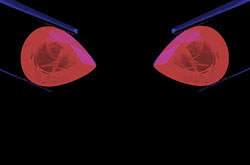
A loving look at ruby – the gem of passion – from the standpoint of the connoisseur.
-
Rutile Silk in Sapphire — Discovery in 1878

In 1878, the noted Austrian mineralogist, Gustav Tschermak von Seysenegg [1836–1927], was the first to properly identify silk in corundum, finding it to be composed of the mineral rutile (TiO2). An English translation of his landmark paper is included, along with the original German version.
-
Sapphire Connoisseurship — Judging Sapphire — Passion Fruit
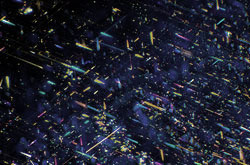
Sapphire is one of the classic gems. In this article, Lotus Gemology's resident connoisseur casts a discerning eye at the factors that contribute to quality in this legendary precious stone.
-
Spinel Inclusions — An Exercise in Aesthetics
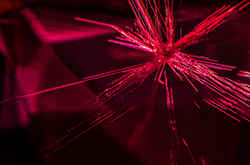
To the jeweler, spinel is famous for its vivid colors. But for the gemologist, this gem is unlike any other. Its extreme hardness allows a fine polish. Couple this with single refraction, which eliminates the image blurring found in most other gems, and a varied landscape of inclusion subjects, and the result is an unparalleled canvas of delight for the photomicrographic artist.
